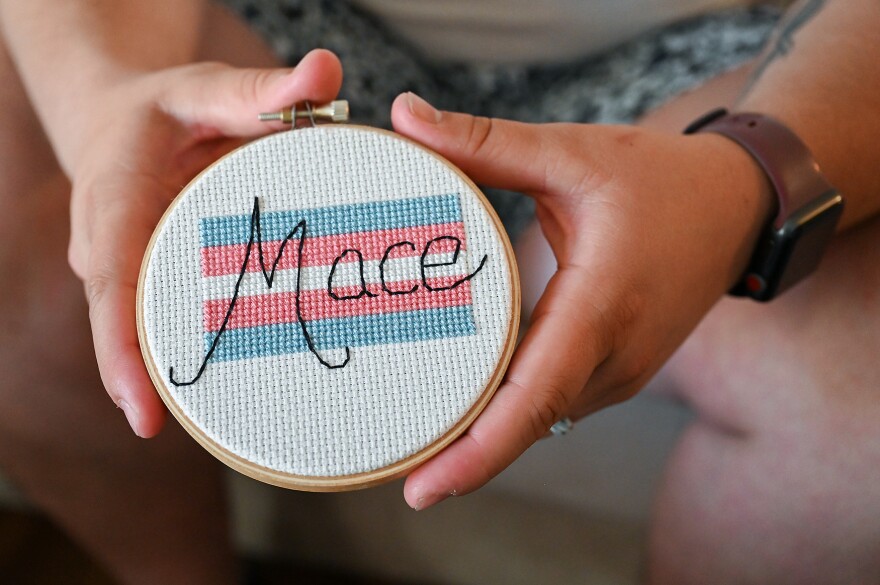Mace Hoover is a 25-year-old trans man, as well as a former teacher. He spoke about how he supported his students during that time, but also about how they have supported and inspired him.
Alphabet Soup shares LGBTQ+ Missourians’ stories through portraiture and personal narratives.
Mace Hoover: I started doing my student teaching here in Columbia at one of the high schools, and so many of the kids were very vocal and out about their gender and sexuality.
And I remember, at the time, kids were telling me their pronouns when I would call their name out, because I still didn't know them too well, and at the end of roll call for one of the classes, I had a student ask me, “What are your pronouns?”
And I was like, “Uh… um, I don't know. I have no idea.”
And the fact that all of them were ready to hear what I had to say, like, they were, like, prepared for whatever I was gonna throw at them.

And the fact that they, the students themselves, these high schoolers, were talking about it and out with their friends and out with their family and super, just like, brave – honestly, that's the best word for it. I was like, “Why am I not allowing myself to at least figure this out?”
I owe a lot of where I'm at right now as far as my transness to that group of kids because they were just awesome.
One of the reasons I'm glad that I went into education, and I have been a teacher for the last two years, is that I could be the representation that I didn't get as a kid.
When I was in high school and throughout school, everyone thought that our choir teacher at the time, – well, one of the choir teachers – was gay, but we didn't know for sure. They never talked about it. They never mentioned their partner, nothing, and I found out in college that that teacher was gay in fact.
My point to that is I never saw it in adults, I didn't really see it in other kids, and now, like, me being in education, I get to be that for other kids.
When I have a student come to me and say, “Hey, I think I want to go by this name” or “Hey, like, I don't use those pronouns anymore,” that's queer joy, you know?
Like they felt comfortable enough – in a way that I didn't get to experience as a middle schooler or a junior high kid, like, they felt comfortable enough telling somebody.
And even if I'm not the first person that they told, like, they're able to do that, you know, and, at least with me, they're safe with it, you know? Like I'm going to, I'm going to do whatever I can to make sure that they know that they're acknowledged and they're accepted.







